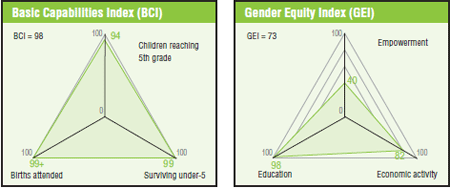Hungary
Published on Mon, 2020-11-16 16:56
Supported by a supermajority in parliament and three landslide elections, in 2010, 2014 and 2018 the government of the Fidesz party, led by Prime Minister Viktor Orbán has severely undermined the system of checks and balances, eliminated political and professional autonomy of most of the state institutions and allowed the capture of the state by influential groups – oligarchs and political players. In October 2019, after years of paralysis and disarray of the Hungarian opposition, they obtained a surprise victory at the municipal elections, announcing changes that are still too early to predict. |
Published on Tue, 2017-10-10 00:00
Hungarian civil groups headed by the Hungarian United Left (MEBAL) called for a demonstration for 10 a.m. on 8th October 2017 in the heart of the previous Jewish ghetto of Budapest (i. e. on Klauzal Square, where 3 thousand killed Jews were piled up in 1944) in order to protest against the presently very powerful autocracy of the right-wing ruling power of FIDESZ and KDNP and the brutal police violence committed against Attila Vajnai, President of the European Left Workers Party 2006. |
Published on Mon, 2017-09-04 07:49
When Hungarian government officials talk about implementing the SDGs they mean less public expenditure in social sectors. Between 2010 and 2015 the Orbán government on the one hand increased state expenditures, doubled spending on the economy, and significantly increased spending by allocating about US$ 340 million annually on sports, mainly for building football stadiums. On the other hand, it decreased expenditures on public health, education and pensions. The government did not save only on pensioners, but also on unemployment benefits, by decreasing their size and duration even when they were taking place on an insurance basis. These measures decreased annual family support expenditures as well, which can be explained by a decrease in the number of children and the decades-long freeze in services. Social benefits were decreased, while extreme poverty increased over the past eight years. |
Published on Fri, 2016-06-24 14:48
The contradictions between economic growth and a sustainable development approaches appear in National Framework Strategy on Sustainable Development (NFSSD) 2012-2024. The first approach identifies classic economic growth as a priority goal; while the second emphasizes environmental preservation and, accordingly, a shift to sustainable consumption and production patterns. The ”decoupling” of economic growth and environmental destruction is envisaged, but it has so far not led to a reduction of the global environmental load in absolute terms, although it has contributed to a modest reduction in its rate of growth. Whether the 2030 Agenda can live up to its promise to advance the sustainable development process and further international cooperation in this regard will only be seen in the implementation process: provided that it creates a precise and transparent monitoring system, argues the Hungarian civil society report. |
Published on Thu, 2013-06-06 00:00
In Hungary a system has developed that is disrespectful to both the rule of law and constitutionalism. Hungary has turned against the democratic ideals of the world, civil liberties are restricted and today it is on a declining economic path. Political life is characterized by a murderous policy divergence, confrontation and a dangerous ideology-based polarization. The majority of the society is struggling with unjust and unequal relationships without even the hope offered by mutual solidarity. Hungary's international prestige, integrity and credibility are now at its lowest point. |
|
Published on Mon, 2012-03-19 08:56
In terms of gender equity Hungary matches the European average, but is slightly below some of its neighbours. |






